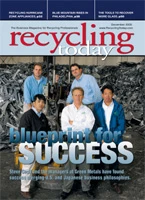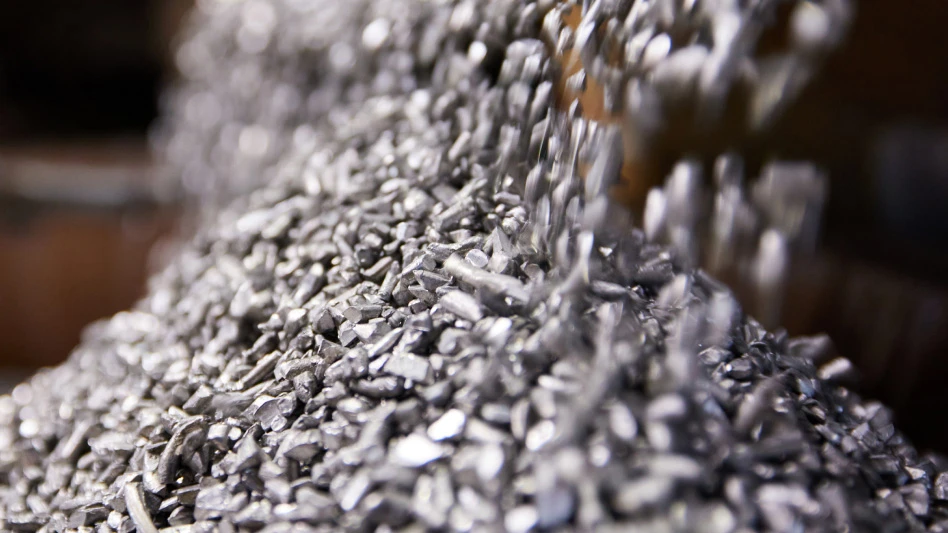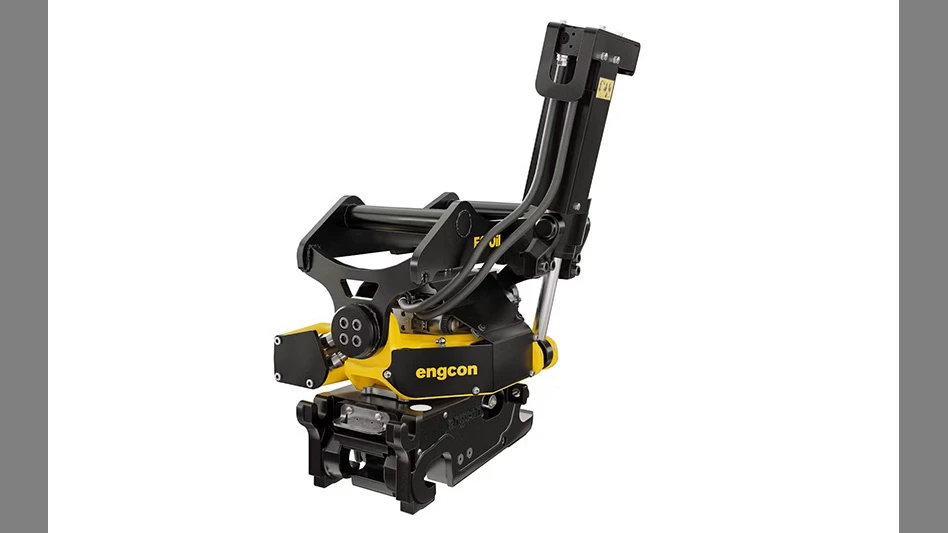
Already happy with its Steinert Eddy Current Separators (NES) and Induction Sorting Systems (ISS), Milliron Recycling, Mansfield, Ohio, was ready to move to the next level when Dennis Ciccotelli of SteinertUS commissioned the company’s first U.S. Selective Sensor feature in their ISS units.
According to Ciccotelli, the Selective Sensor option is new to the North American market in 2005. Although it is new technology, the good news for existing customers is that it can be easily retrofitted to work with existing Steinert ISS units.
"The Selective Sensor is identical in size and shape to the existing ISS sensor that is already popular," he notes. "The difference is in the internal electronic components and programming."
What the Selective Sensor does differently from the ISS sensor is seek out a specific type of metal for detection and separation, allowing recyclers to maximize the purity (and thus, shipping value) of a type of metal that is enjoying a boom market.
"The sensor and the software, instead of making one decision, makes multiple analyses of the electronic signature of the particles," Ciccotelli notes.
Milliron Recycling has continued to use the ISS all-metal setting every day to harvest all of the metal from its shredder stream.
But then once a week, the company has been running its mixed metals back through while the Selective Sensor option is on to create a high-value stainless steel scrap product for a consumer willing to pay for the upgraded material.

"Depending on market conditions, they can either continue to do this or they can market an upgraded mixed metals product from what they were already producing," Ciccotelli says.
The Milliron shredder, which is from Texas Shredder Inc., began operating in April of 2005. Milliron Recycling owner Grant Milliron says the eddy currents have done a superb job capturing aluminum and copper in the post-shredder stream, while the Steinert ISS units (whether on the all-metals setting or the Selective Sensor setting) are catching stainless steel and aluminum, steel, copper, lead and brass that would otherwise be landfilled.
Grant says the Steinert machines are technologically complex, yet built to last. "They are essentially trouble-free pieces of equipment, providing smooth operation and requiring little maintenance."
Ciccotelli says of Milliron Recycling, "They purchased the first of its kind in the United States and they are pleased with the Selective Sensor option."

Explore the December 2005 Issue
Check out more from this issue and find your next story to read.
Latest from Recycling Today
- Author predicts spike in silver’s value
- SWANA webinar focuses on Phoenix recycling collaboration
- Domestic aluminum demand up through Q3 2024
- IntelliShift honored at IoT Breakthrough Awards
- Ace Green Recycling finalizes plans for battery recycling site in India
- Ambercycle, Benma partner to scale circular polyester
- NIST database aimed at increasing textile recycling
- ILA, USMX announce tentative agreement





